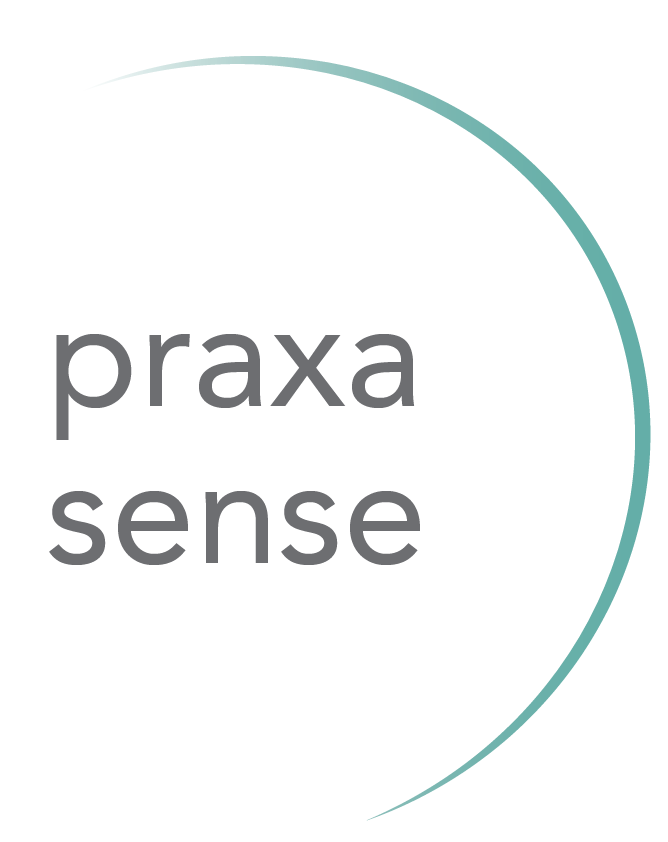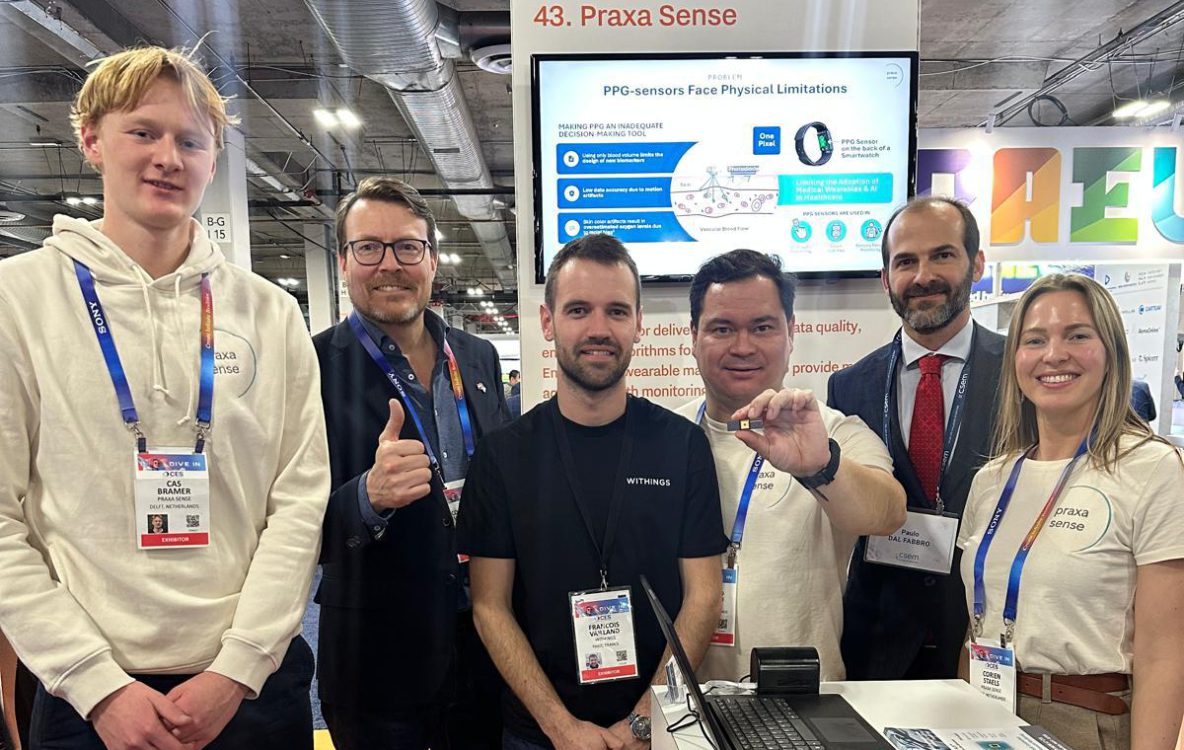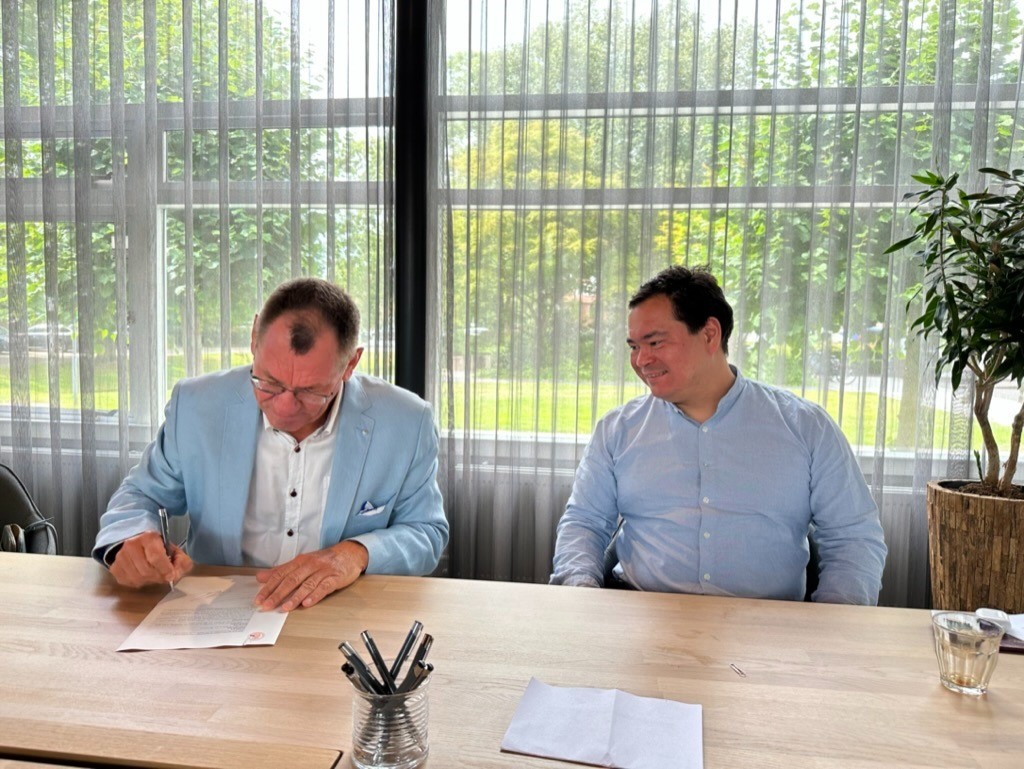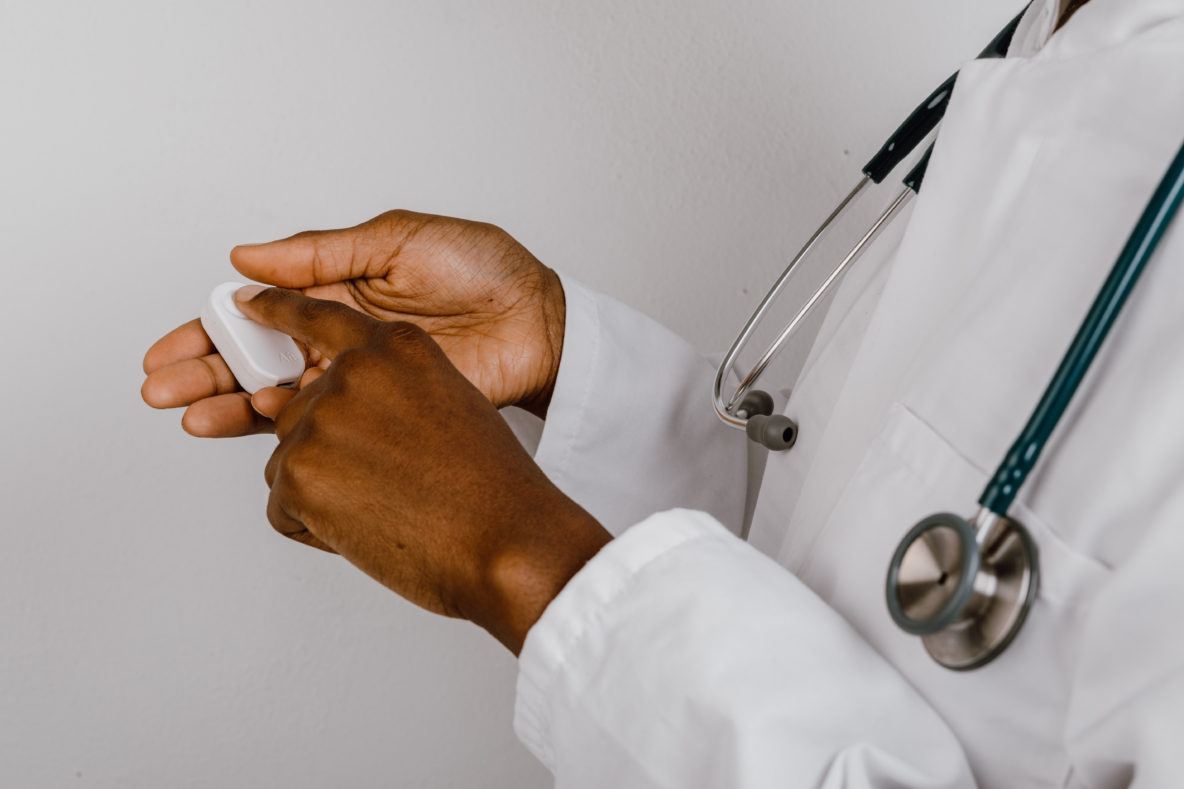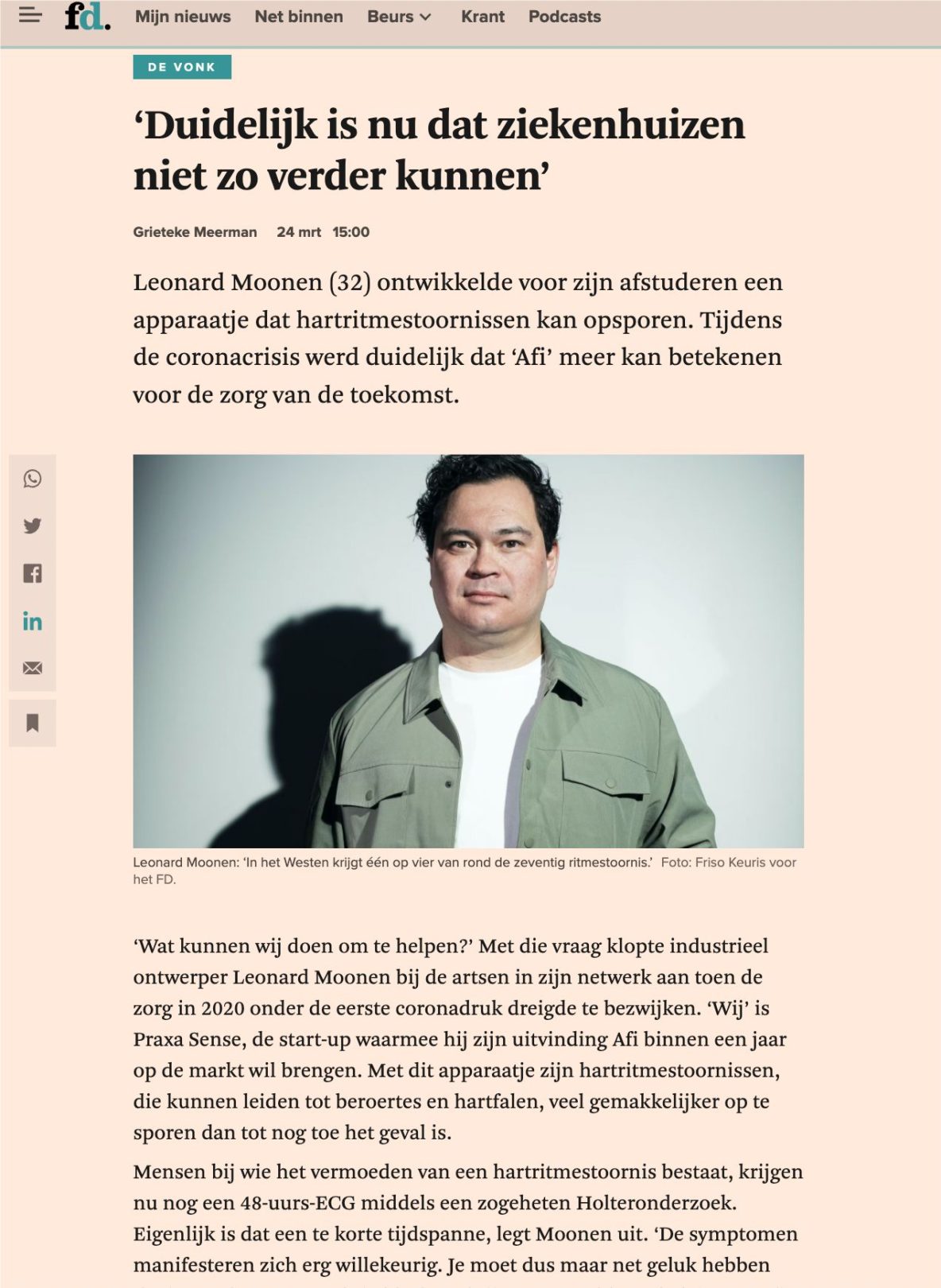Praxa Sense is proud to announce that it has received a Eurostars grant to support a three-year collaboration with Withings, a leader in connected health devices, and CSEM, a Swiss innovation center. With a total project budget of €2 million, of which approximately €800,000 is funded by EUREKA, this partnership will drive the future of cardiovascular health monitoring. About the SPECTRA Project The SPECTRA project aims to combine cutting-edge sensor technology with advanced algorithms to deliver new insights into cardiovascular health with minimal user burden. The project focuses on two key areas: An innovative remote patient monitoring device with the integrated ALISTM system Development of a Cardiovascular Risk Index Shaping the Future of Cardiovascular Health The outcomes of the SPECTRA project will represent a significant leap forward in remote health monitoring. With these innovations, Praxa Sense aims to revolutionize real-time monitoring of cardiovascular health. We are deeply grateful to Withings and CSEM for their confidence in the technical potential of the ALIS TM system. Special thanks also to EUREKA for supporting this shared vision of innovation and improved healthcare. 🚀
Advanced Light Interaction Methods in ALIS™
Summary The increasing demand for remote health monitoring (RHM) has highlighted the importance of reliable sensors in wearable devices. Photoplethysmography (PPG), a widely used technique, measures light absorption to monitor vital signs but faces challenges such as susceptibility to external light fluctuations. Praxa Sense has developed a novel sensor, ALIS™, that integrates the measurement of both light absorption and scattering. Alongside the traditional PPG signal, it provides an additional Blood Flow index (BFi). Experimental results show that the ALIS™ scattering-based BFi signal is robust to external light fluctuations, enhancing reliability in ambulatory settings. This positions ALIS™ as a powerful tool for advancing RHM.
Novel ALIS™ Blood Flow index for improved health monitoring
Summary Non-invasive technologies in wearable health devices have become increasingly important due to the rising demand for remote health monitoring (RHM). Among these, photoplethysmography (PPG) is a widely adopted method that measures light absorption, mainly reflecting fluctuations in peripheral blood volume. Praxa Sense has developed a novel sensor, ALIS™, that integrates the measurement of both light absorption and scattering. Alongside the traditional PPG signal, it provides an additional Blood Flow index (BFi). Establishing the relationship between flow velocity and the BFi signal is key for understanding and advancing this novel scattering-based technique. Controlled in-vitro experiments demonstrate a predictable alignment between the BFi signal and physiologically representative flow velocities, with an average mean percentage error (MPE) of −0.80±6.73%. By combining BFi and PPG signals, ALIS™ offers a more comprehensive assessment of peripheral blood circulation, establishing a foundation for advanced algorithm development in RHM.
Praxa Sense winner of the Zuid-Holland regional Round for the National Healthcare Innovation Award 2025
The Delft-based company Praxa Sense was announced as the winner of the Zuid-Holland regional round for the National Healthcare Innovation Award 2025 (‘Nationale Zorginnovatieprijs’) during the Medical Delta Café on December 11. Praxa Sense will represent the province of Zuid-Holland in the final of the National Healthcare Innovation Award 2025 at the Health Valley event on March 13, 2025, in Nijmegen. The award ceremony will take place during Zorg&ICT on April 9 in Utrecht. Praxa Sense developed a sensor that measures biosignals in humans. The sensor uses laser technology that is significantly less affected by motion and works well on darker skin tones. It also measures blood velocity, enabling additional vital signs to be monitored remotely, particularly heart health. The sensor is small enough to be integrated into devices such as smartwatches. “Impressed by the technology and potential societal impact” The jury, consisting of Elisabeth Minnemann (Chair of the Executive Board of The Hague University of Applied Sciences), Marieke Kodde (InnovationQuarter), and Ide Swager (one of the founders of former winner Momo Medical), was unanimous in its decision. “The uniqueness … Lees meer
Praxa Sense picked as Challenger50 by MT/Sprout
We have been designated by MT/Sprout as one of the 50 most challenging, innovative and fast-growing companies in the Netherlands! Liselotte Stolk en Leonard Moonen maken een sensor voor smartwatches en andere remote monitoring-toestellen die medische data verzamelen. Wat: sensoren voor medische dataverzameling Wie: Liselotte Stolk (33) en Leonard Moonen (35) Daagt uit: PPG, een medische meettechnologie die al bestaat sinds 1936 Sinds: 2018 Website: praxasense.com Leonard Moonen is laatst op een beurs nog ‘achterna gerend voor informatie’. Zo graag willen de fabrikanten van slimme wearables meer te weten komen over de unieke lasertechnologie van Praxa Sense uit Delft. De sensor die hij met cofounder Liselotte Stolk in de markt zet, biedt namelijk een aantal grote voordelen ten opzichte van de huidige gebruikte technologie, zoals het kunnen meten op een donkere huidskleur, het leveren van robuuste data ook als de drager beweegt en het toevoegen van een extra meeteenheid: bloedsnelheid. Technologie uit 1936 Smartwatches maken momenteel voor het meten van hartslag gebruik van PPG-technologie, die stamt uit 1936. Kleine ledlampjes aan de achterkant van zo’n horloge sturen licht door de … Lees meer
[DUTCH] Praxa Sense featured in Quote Magazine
Founders of Praxa Sense, Leonard Moonen and Liselotte Stolk, have been interviewed by Quote Magazine about Praxa Sense’s sensor, called Afi. (Interview in Dutch). Hoe is het idee voor Praxa Sense ontstaan? Leonard Moonen: ‘Ik ben afgestudeerd in het cardiolab aan de TU Delft, een samenwerking met Philips en de Hartstichting. Philips had in die tijd een concept voor een smartwatch waar ze ook diagnostiek mee wilden doen. Na mijn afstuderen ben ik een startup begonnen en daar heb ik Liselotte bij gevraagd.’ Liselotte Stolk: ‘Ik zag het gelijk voor me. Hiermee kunnen we echt impact maken.’ Wat doen jullie precies? Moonen: ‘We willen de druk op ziekenhuizen verminderen door patiënten op afstand te monitoren. We kwamen erachter dat de sensors in een smartwatch daarvoor niet accuraat genoeg waren. Toen zijn we met een apparaatje gaan schuiven over het lijf om te kijken of het signaal zou verbeteren. Van de pols naar de bovenarm naar de borst, maar het signaal bleef op al deze plekken niet goed genoeg. Uiteindelijk hebben we besloten ons te richten op de ontwikkeling van een … Lees meer
[DUTCH] ‘Ondernemen vraagt om lef’ – Praxa Sense interview door Innovation Quarter
Link naar het originele artikel. Tijdens de vierde sessie van de Health Tech Accelerator spraken we met Leonard Moonen, medeoprichter van Praxa Sense, op de inspirerende locatie van Sanquin Bloedvoorziening in Amsterdam. Hier bevindt zich ook het Health Tech Innovation District Amsterdam. Leonard vertelt over zijn innovatie, het uitdagende pad dat hij bewandeld heeft samen met zijn co-founder Liselotte Stolk, inclusief de hobbels om te komen waar ze nu staan met een team van 14. Een half jaar geleden besloot Praxa Sense een strategische koersverandering door te voeren. Want ook dat hoort bij ondernemen. Deelname aan de Health Tech Accelerator kwam op het juiste moment. De innovatie Het idee voor ons eerste product, Afi, ontstond tijdens mijn Master aan de TU Delft, in samenwerking met de Philips Hartstichting, waar ik onderzoek deed naar hartritmestoornissen en diagnostiek. Afi is een multisensor remote patient monitoring apparaat met als doel het vroegtijdig opsporen van boezemfibrilleren, een veelvoorkomende hartritmestoornis die kan leiden tot een herseninfarct of TIA. Samen met medestudent Liselotte Stolk besloten we een spin-off bedrijf op te richten vanuit de TU Delft: … Lees meer
Praxa Sense secures investment round: Certified remote patient monitoring within reach
Delft, July 2023 – The Dutch MedTech startup Praxa Sense, a company with leading solutions in remote patient monitoring, successfully secured an investment round to enter the commercialisation phase. This round is led by business angel investor Arthur Oudshoorn together with a group of informal investors. Arthur is an experienced Entrepreneur with a proven track record in the biotech market. The benefits Praxa’s revolutionary technology brings to the healthcare market triggered his interest;”The breakthrough technology that Praxa Sense is providing to the healthcare market will be a game-changer in remote patient care. The enthusiasm with which the product has been received by patients during trials has exceeded all our expectations. I am proud to contribute to this “all Dutch” innovation in healthcare.” Praxa Sense, founded in 2018 by Leonard Moonen and Liselotte Stolk, initially focused on the early detection of atrial fibrillation. During the covid-crisis the solution was extended to reliably monitor a variety of patients’ vital signs (heart rate, blood saturation, temperature, movement). Simultaneously a revolutionary new sensor is developed in collaboration with the Delft University of Technology, Fraunhofer and … Lees meer
Eurostars #1: Praxa Sense’s AMBULAS project
Praxa Sense is proud to announce its success in the most recent Eurostars round, where we ranked number 1 out of all 428 applications in Europe. With the AMBULAS project we will further develop our sensor system, the most accurate remote monitoring device for continuous passive measurements in an ambulant environment of (among others) ECG, blood oxygen saturation, temperature and movement. The combination of these measurements are highly valued in remote monitoring in multiple care paths. During this project an additional revolutionary sensor will be developed that overcomes problems of inaccuracy due to motion sensitivity, one of the biggest obstacles in reliable remote monitoring. Thus, the device can provide relief to an overburdened healthcare system, while delivering regular and accurate readings that require minimal involvement from the patient. We are proud of our collaboration with Catalyze, AdviCo Microelectronics and Fraunhofer Institute for Microelectronic Circuits and Systems n the development of this top-of-class Eurostars proposal and look forward to the partnership with our new international partners. About Eurostars Eurostars is a European innovation program and an initiative of EUREKA and the … Lees meer
Founder Leonard Moonen featured in Dutch newspaper FD
‘Duidelijk is nu dat ziekenhuizen zo niet verder kunnen’ https://fd.nl/tech-en-innovatie/1433944/duidelijk-is-nu-dat-ziekenhuizen-niet-zo-verder-kunnen
- Page 1 of 2
- 1
- 2
